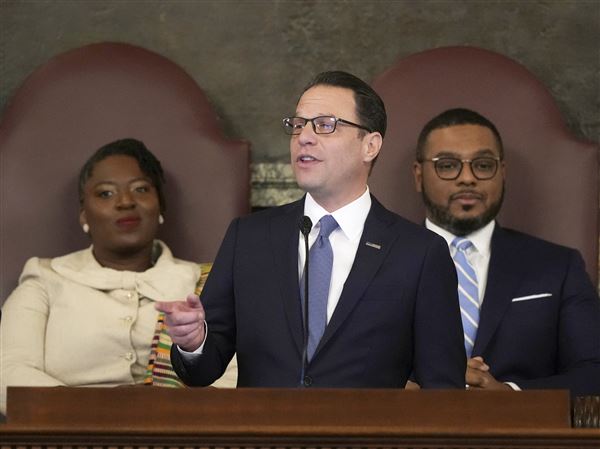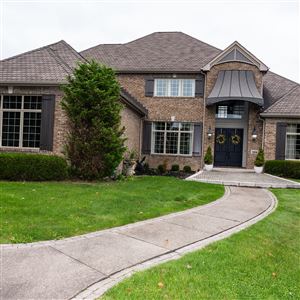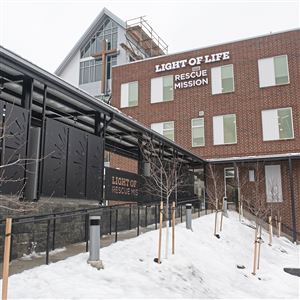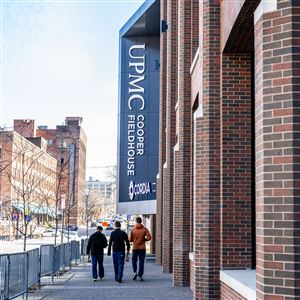HARRISBURG — Legislation is emerging in both chambers of the General Assembly to help provide affordable housing by making changes to municipal zoning ordinances.
The proposals seek to address what many describe as a crisis putting affordable housing out of the reach of many Pennsylvanians.
The common thread in separate bills being prepared for introduction in both the Senate and House is that restrictive zoning ordinances prevent the building of homes that are affordable across all income levels.
The target of this legislation is the state Municipalities Planning Code (MPO) which gives cities, counties, municipalities, boroughs and townships the authority to plan their development by zoning subdivision and land development ordinances, planned residential development and other ordinances, official maps and reserving land for public use.
Sens. John DiSanto, R-Dauphin, Dan Laughlin, R-Erie, and Greg Rothman, R-Cumberland, announced plans last week to introduce legislation to tackle zoning restrictions and land use regulations.
“These regulations not only increase construction costs, but also curtail the development of medium and high-density housing options, which are being sought by potential residents across the state,” they said in a cosponsor memo.
Reps. Joshua Siegel, D-Lehigh, and Tarik Khan, D-Philadelphia, filed a cosponsor memo last week seeking support for three bills to revise the MPO.
Mr. Siegel said the bills will use real estate and methods adopted by other states to ensure quality affordable housing.
The two plans share a similar proposal to revise the MPO to require that local governments with a population greater than 5,000 allow the use of medium density housing or duplex housing in areas zoned for single family housing.
There has been no coordination between lawmakers on the legislation, but they appear to have a similar proposal to permit medium-density housing in larger municipalities, said DiSanto Chief of Staff Chuck Erdman Monday.
“We are hopeful this is the beginning of a bipartisan consensus” on needed land use reforms, said Mr. Erdman who added that Democratic senators are signing onto Mr. DiSanto’s bill.
Allowing duplex housing in single family areas would increase the number of multi-family residential units available in Pennsylvania, said Mr. Siegel and Mr. Khan in their memo.
Beyond that, the DiSanto proposal would grant the automatic right to use manufactured housing and accessory development units (mainly for family members) in single-family zoned areas to ensure that municipal requirements for minimum lot sizes and parking spaces don’t interfere with housing affordability.
Mr. Siegel’s legislation would also allow multi-family housing and mixed-use development in urban areas zoned for office and retail use with existing water and sewer systems. He said the rise of teleworking means that businesses don’t need as much office space.
His legislation would also provide for single-exit stairwells allowing for more housing units to be built with spacious corridors and better lighting.
Meanwhile, Rep. Thomas Kutz, R-Cumberland, and Mr. Siegel have introduced House Bill 1386 to allow municipalities to be designated an “affordable housing community” if they meet certain criteria.
These include allowing for accessory dwelling units in zoning ordinances, providing solutions to meet middle income housing needs and allowing for mixed commercial/retail and residential development where appropriate.
“Accessory dwelling units are particularly suited to the needs of homeowners as they age,” said Samar Jha, government affairs director for AARP Pennsylvania, during a Senate Republican Policy Committee hearing last May. “They allow a separate unit inside or outside the home which can be used to keep family nearby, to house a caregiver, or to supplement fixed incomes.”
Mr. Jha said they are often referred to as an accessory apartment, backyard bungalow, basement apartment, guest cottage and granny flat among other terms.
At that hearing. Glen Yoder, chairman of the legislative committee for the Pennsylvania Association of Realtors, said “Restrictive zoning ordinances not only drive up costs, but they also may further marginalize communities and they ignore the desires and trends among consumers.”
First Published: November 8, 2023, 5:26 p.m.




















